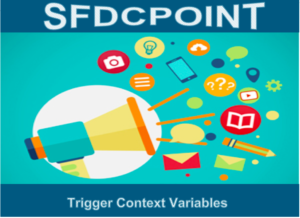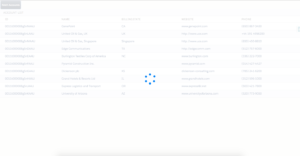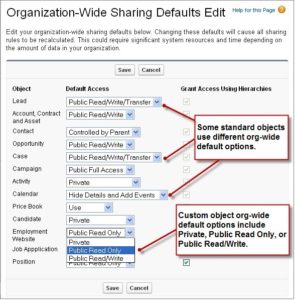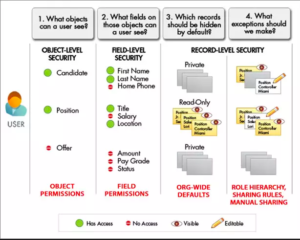Salesforce Governor Limits What is Salesforce Governor Limits? What are governor limits in salesforce? Salesforce Governor Limits Apex runtime engine strictly enforces limits to ensure that runaway Apex code or processes don’t monopolize shared resources. Why Salesforce has Governor Limits? Because Apex runs in a multitenant environment, the Apex runtime engine strictly enforces limits to ensure that …
Tag: salesforce
Permanent link to this article: https://www.sfdcpoint.com/salesforce/salesforce-governor-limits/
Nov 21
aura:if tag Lightning component example
aura:if tag Lightning component example aura:if tag Lightning component example aura if renders the content within the tag if the isTrue attribute evaluates to true. The framework evaluates the isTrue expression and instantiates components either in its body or else attribute. Difference between aura if and aura renderIf aura:if instantiates the components in either its body or the else attribute, but not both. aura:renderIf instantiates both the components …
Permanent link to this article: https://www.sfdcpoint.com/salesforce/auraif-tag-lightning-component-example/
Nov 20
apex random number Salesforce
apex random number Salesforce apex random number Salesforce Many time we have requirement to generate random number in Apex. It can be achieved using Math.random() function. This method return a positive Double that is greater than or equal to 0.0 and less than 1.0. This method only returns number between 0.0 and 1.0. Now its important …
Permanent link to this article: https://www.sfdcpoint.com/salesforce/apex-random-number-salesforce/
Nov 15
Delete Lightning Component in Salesforce
Delete Lightning Component in Salesforce Delete Lightning Component in Salesforce is very easy. If we don’t want to use IDE like sublime or Eclipse then we can use developer console. Open Developer Console Open Your lightning component from File -> Open Lightning Resource Click on File Delete or use shortcut Ctrl+Delete Salesforce Lightning Interview …
Permanent link to this article: https://www.sfdcpoint.com/salesforce/delete-lightning-component-in-salesforce/
Oct 31
Trigger context variables in salesforce
Trigger context variables in salesforce What are Trigger context variables in salesforce? Trigger context variables in salesforce All triggers define implicit variables that allow developers to access run-time context. These variables are contained in the System.Trigger class. Following are the context variable available in triggers. Please note variable availability in trigger varies according to the type …
Permanent link to this article: https://www.sfdcpoint.com/salesforce/trigger-context-variables-in-salesforce/
Oct 18
Salesforce Interview Questions on Triggers
Salesforce Interview Questions on Triggers In this post I am going to share Salesforce Interview Questions on Triggers What is a Trigger? Apex triggers enable you to perform custom actions before or after events to records in Salesforce, such as insertions, updates, or deletions. Just like database systems support triggers, Apex provides trigger support for …
Permanent link to this article: https://www.sfdcpoint.com/salesforce/salesforce-interview-questions-on-triggers/
Jun 23
Loading spinner in lightning component
Loading spinner in lightning component What is Lightning Spinner? Loading spinner in lightning component Spinners are CSS loading indicators that should be shown when retrieving data or performing slow computations. lightning:spinner displays an animated spinner image to indicate that a request is loading. This component can be used when retrieving data or performing an operation that …
Permanent link to this article: https://www.sfdcpoint.com/salesforce/loading-spinner-in-lightning-component/
Apr 28
Organization Wide Defaults(OWD) in salesforce
Organization Wide Defaults(OWD) in salesforce What is OWD In Salesforce? Organization Wide Defaults(OWD) in salesforce is the baseline level of access that the most restricted user should have. Organizational Wide Defaults are used to restrict access. You grant access through other means like(sharing rules, Role Hierarchy, Sales Teams and Account teams, manual sharing, Apex Sharing …
Permanent link to this article: https://www.sfdcpoint.com/salesforce/organization-wide-defaults-owd-in-salesforce/
Mar 19
Salesforce security interview questions
Salesforce security interview questions Salesforce security interview questions or data and security salesforce interview questions There are different levels of security that is implemented in Salesforce. This post is related to data and security. What are different Levels of data access in Salesforce? Organization level security For your whole org, you can maintain a list of …
Permanent link to this article: https://www.sfdcpoint.com/salesforce/salesforce-security-interview-questions/
Permanent link to this article: https://www.sfdcpoint.com/salesforce/get-started-with-salesforce-dx/








Recent Comments